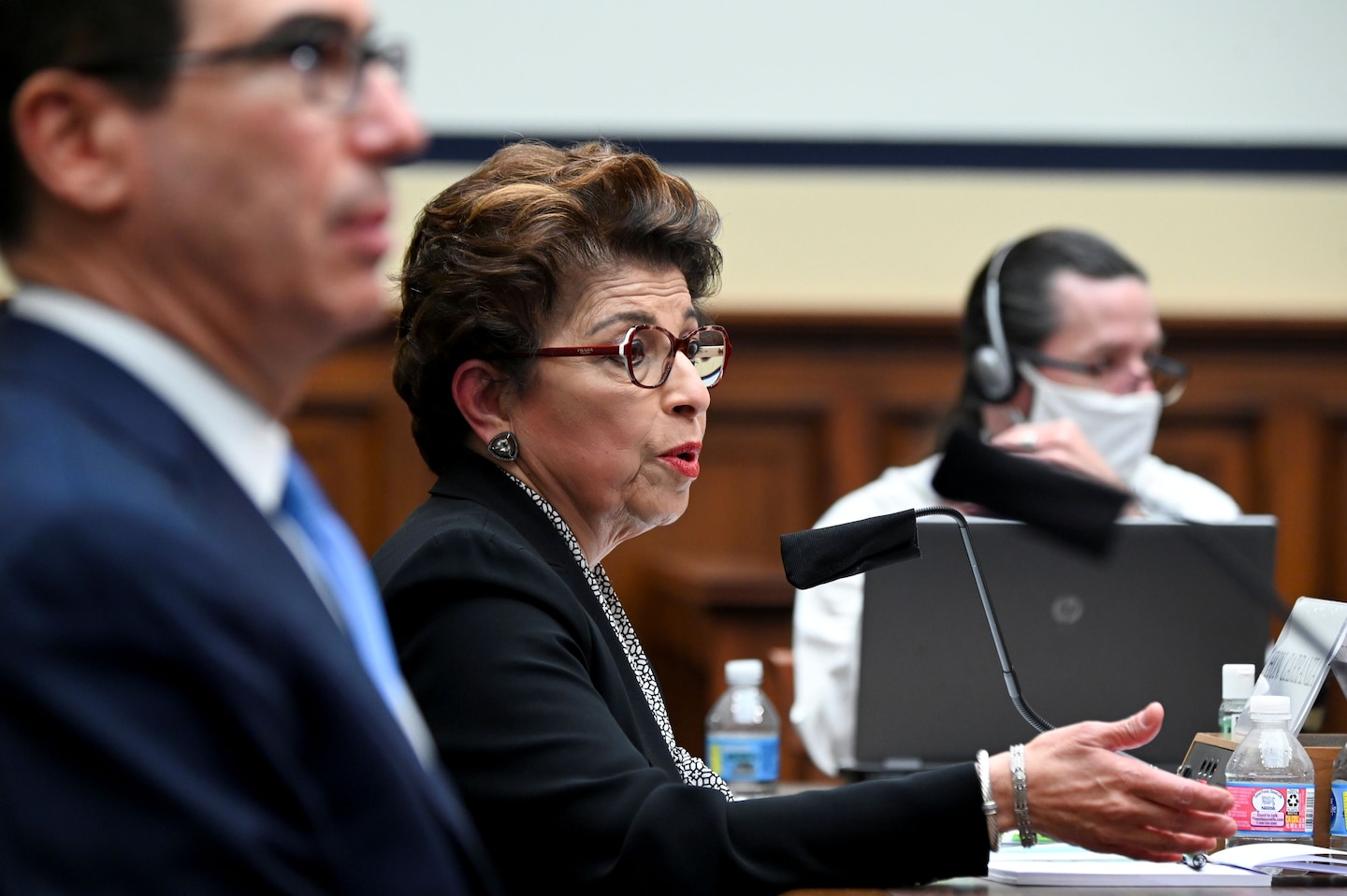SBA watchdog report details ‘pervasive’ fraud in coronavirus disaster-loan program

Among the potentially fraudulent transactions detailed in the report are $1.9 million in pending SBA transactions made to accounts outside the United States, roughly 3,000 “suspicious” transactions worth $73 million that were flagged by a banking service provider. A credit union told the Justice Department that 59 out of 60 SBA deposits it received appeared to be fraudulent.
“We are alarmed by these reports, but they are consistent with our investigations, which indicate pervasive fraudulent activity,” the inspector general wrote.
In response to questions about the report, an SBA spokesman said the agency proactively carried out fraud prevention measures that halt thousands of invalid applications before they were approved. The measures include automated tools, internal “system rules” and checks designed to catch fraudulent applications.
In a response that was included in the inspector general’s report, SBA Administrator Jovita Carranza said the findings were “unexpected.” She disputed the assertion that SBA failed to implement proper internal controls.
“The reality is that SBA has developed and implemented a comprehensive, rigorous, end-to-end infrastructure to reduce the risk of fraud in the EIDL COVID program,” Carranza wrote.
The Economic Injury Disaster Loans (EIDL) program was the first federal small-business assistance program activated to fight the economic crisis caused by the coronavirus pandemic. It is different from the $660 billion Paycheck Protection Program in that it has fewer restrictions on how the loan funds can be spent, and loans are processed by the government rather than private banks.
The program offers loans at a 3.75 percent interest rate, higher than PPP loans but still much lower than what most businesses could find on the private market. It also offers cash-advance grants worth up to $10,000.
Although it eventually processed millions of disaster loans at a time of severe economic vulnerability, the EIDL program’s rollout was hampered by bureaucratic delays, a lack of transparency on the part of public officials overseeing the program and concerns that the program could be vulnerable to scams.
The program was activated March 12 when small businesses were just beginning to come to grips with a near-complete state-by-state shutdown in in-person commerce. It received several million applications in a matter of days.
At first, the program did not address loan applications in a timely manner. Although it advertised a processing time of 21 days, it took the SBA six weeks to work through the first 38,984 loans, amounting to less than 1 percent of the agency’s backlog at the time.
Later, after business organizations and members of Congress raised concerns about the delayed loan applications, the SBA quickly worked through the bulk of its backlog in May and June. It did so by hiring about 1,200 loan evaluators, outsourcing much of its work to Rocket Loans and other consultants, and streamlining internal loan approval processes. As of July 15, the agency had approved 2.6 million loans for a total of $150 billion, according to an SBA document.
The report released Tuesday described roughly 6,100 disaster loans and about 20,000 advance grants sent to potentially ineligible businesses. They include businesses that were registered after the Jan. 31 application cutoff specified by SBA regulations.
The inspector general’s office also identified hundreds of businesses that were given more than one disaster loan. In its report, the office noted that the duplicate loan receipts were made possible because the agency “does not have effective controls in place to determine if the applicants had previously applied for and received financial help.”
Sen. Marco Rubio (R-Fla.), who chairs the Senate Small Business and Entrepreneurship Committee, called the inspector general’s findings “alarming” and pointed to fraud detection measures that his office supported when the coronavirus relief legislation known as the Cares Act was being drafted.
“The purpose of COVID-19 EIDL loans and advances are to aid eligible, legitimate American small entities with both a quick injection of capital and long-term financing for working capital needs brought on by the pandemic,” Rubio said in a statement. “I’m proud to have worked to secure language in the CARES Act to ensure the federal government has the tools to identify and go after fraudulent activity while protecting taxpayer dollars.”






